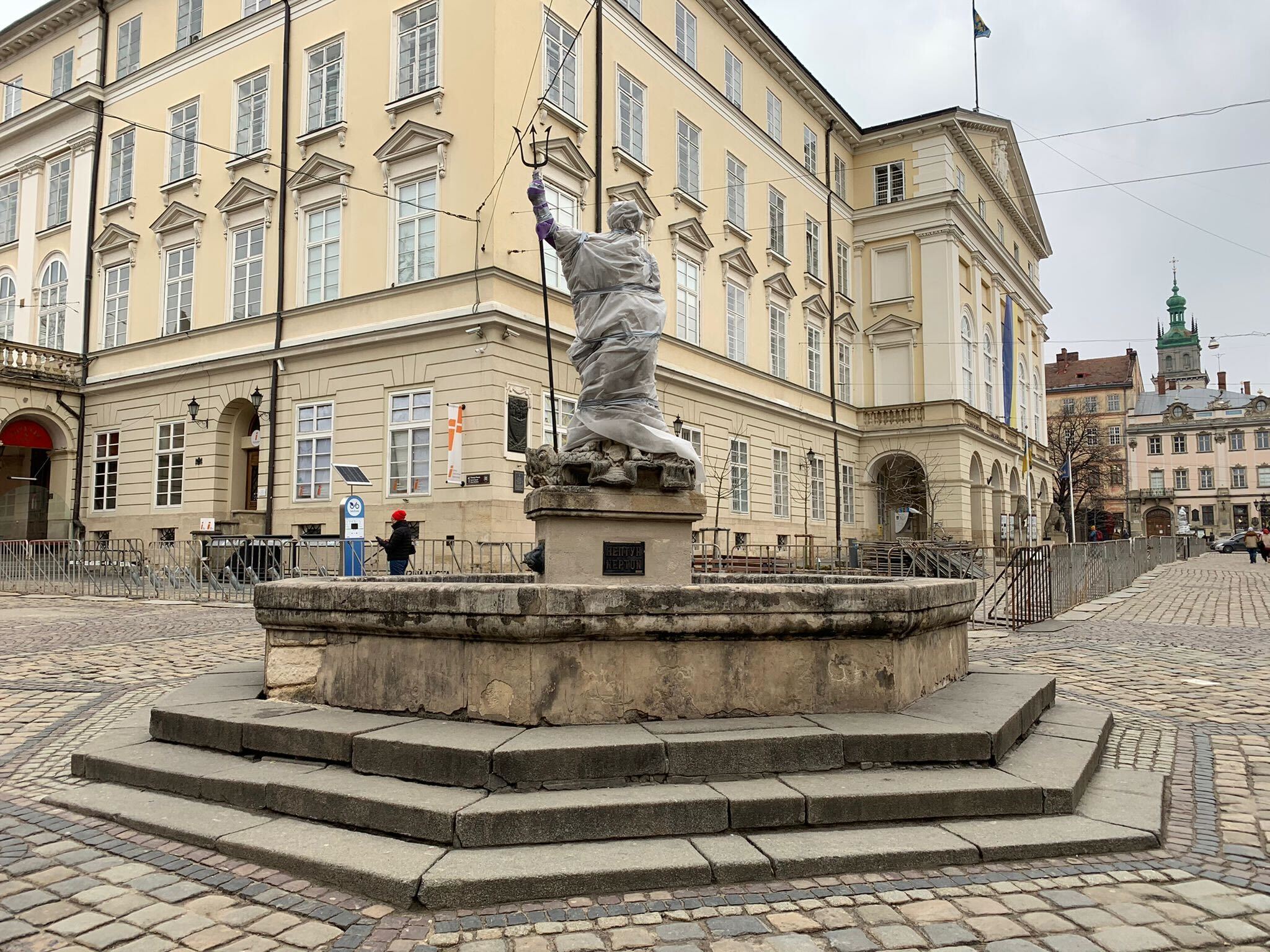Lviv Begins Wrapping Up Statues in Preparation for Russian Bombing

Credit to Author: Ben Makuch| Date: Tue, 08 Mar 2022 16:33:59 GMT
LVIV, Ukraine – On an overcast Monday morning, tram cars passed the corner of a busy street in central Lviv where over fifty men huddled around two open doors as soldiers and a shopkeeper handed out guns and boxes of ammunition. A gray van pulled up beside the crowd, with men in military fatigues quickly grabbing out rifle-bags and more boxes to satisfy demand.
“Do not film this,” one soldier yelled at two passing media workers holding small cameras and cellphones. Ukrainian authorities have been careful to try and keep as much about their logistical war efforts off of social media, in case Russian intelligence is watching and logging where to target should this city come under attack.
Lviv, a city in western Ukraine, has been untouched by the combat and shelling seen across the rest of the country. But for the crowd gathered to buy weapons, a Russian invasion feels like a real threat.
Authorities set off near-daily air sirens when Russian planes or missiles approach. Nearby Ivanno-Frankivsk, 130 kilometres to the south, was bombed and paratroopers were dropped in the region (but immediately repelled) in late February when this iteration of the Ukraine-Russia war began. But so far, the historical city of Lviv, with its countless statues and cobblestone streets, has yet to be directly exposed to attack.
But people here wonder if the unthinkable might happen soon as the war drags on and the Kremlin grows more desperate. Many see the same pattern possibly repeating as it has in other cities in Ukraine: if President Vladimir Putin’s forces can’t defeat the pesky Ukrainian counteroffensives, he will bomb civilians and their infrastructure into submission instead.
Victor, a twenty-something tech worker, is a self-described “pacifist” and Lviv native.
“These are my guns I bought, because they make it very easy now with the laws and the war coming,” he said to VICE News, showing a picture of a pistol and an assault-style rifle.
“If the Russians come here I will defend my city.”
Down a bustling street with children walking in one-piece snowsuits holding their parents' hands and nearby an iconic opera house, the Lviv city administrative building sits with an array of iconic statues surrounding it. One of the bronze figures is holding the national symbol of the Ukrainian trident, but like many of the others near it, it’s hidden—wrapped in padding and secured with straps, protecting it against shrapnel damage should a Russian bomb find its way into Lviv. The windows of a church adjacent to that statue had its windows reinforced and boarded, while its statues, too, were covered in protective materials.
One soldier at a volunteer recruitment center said city authorities took that precaution with many of the bronze statues near the city administration building, because in the now thirteen day-old war, Russian aircraft and rockets have been purposely targeting those strategic buildings in other cities around Ukraine.
The anxiety that it might happen in Lviv, a city designated a UNESCO World Heritage site, is real. In recent days, a several hundred-year-old wooden cutout of Jesus on the crucifix was put into bunker storage for the first time since WWII.
But it’s not all doom and gloom. Lviv is alive during the hours outside of curfew time (10 p.m. to 7 a.m.) and while it’s a dry city for the time being, shops and cafes are full of patrons. Rideshare apps like Bolt and Uklon are still working and though UberEats is no longer providing service in the area, other equivalents are available for order throughout the day.
Since Kyiv has been under siege and other major cities like Kharkiv and Odessa under devastating bombardments, Lviv, what many see as the the capital and soul of Ukrainian culture, has emerged as a vital line of resistance. Not only has its strategic closeness to Poland been instrumental in the ferrying of weapons and supplies into Ukraine by rail and vehicle, it has become the epicenter for trains filled with refugees fleeing other parts of the country.
How much longer this delicate peace will hold is another gambit only Putin can answer. But its citizens say they are ready.
“We will fight,” said Victor.